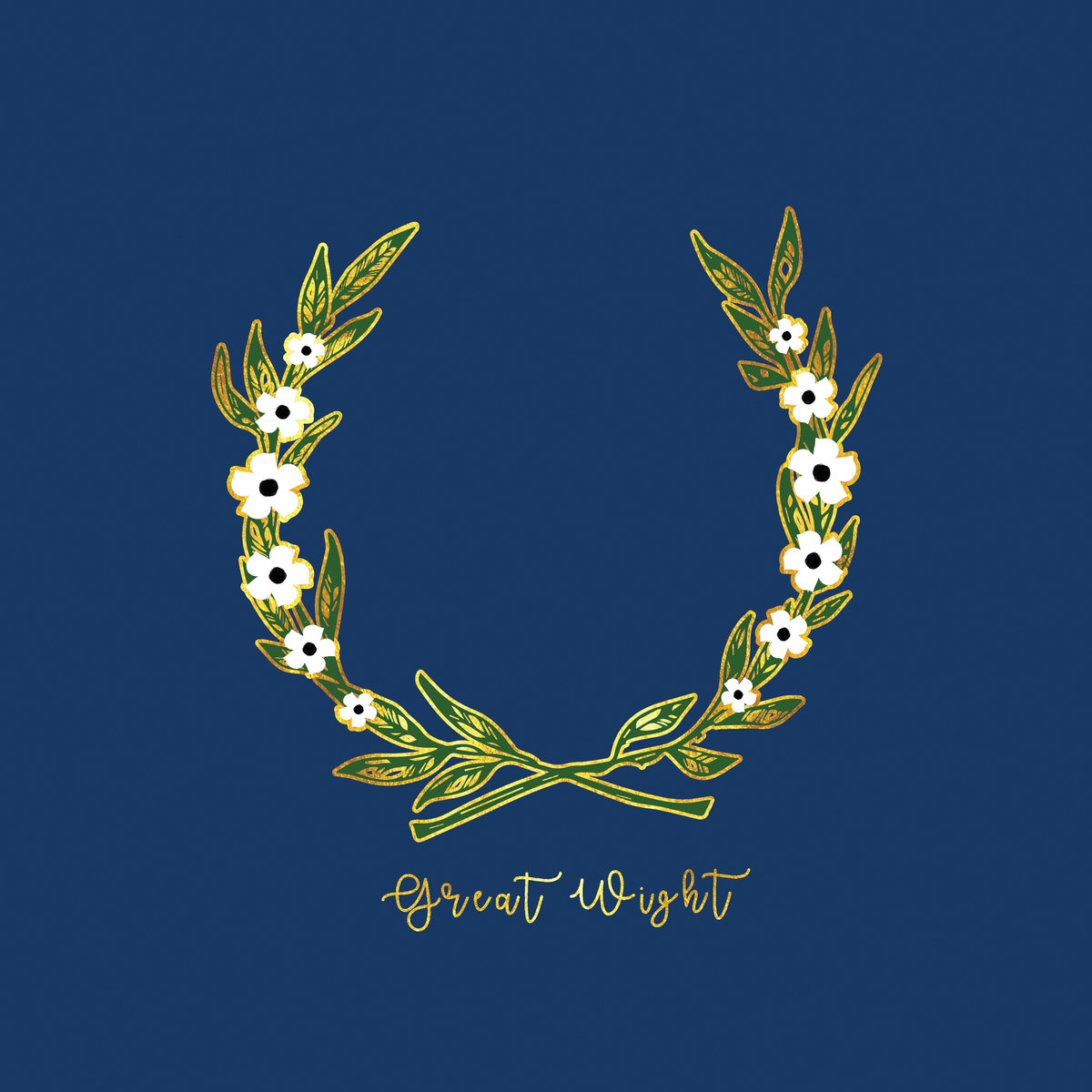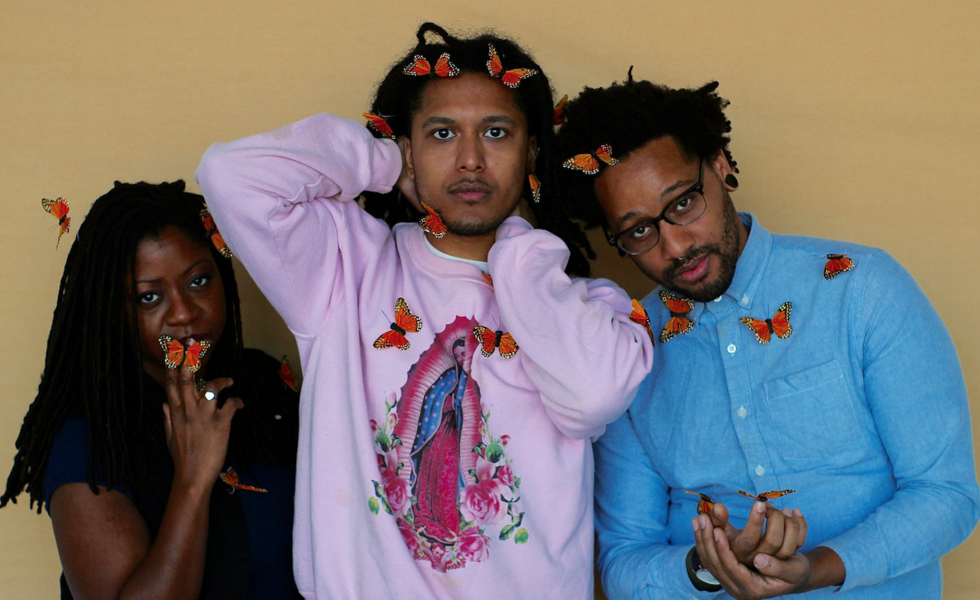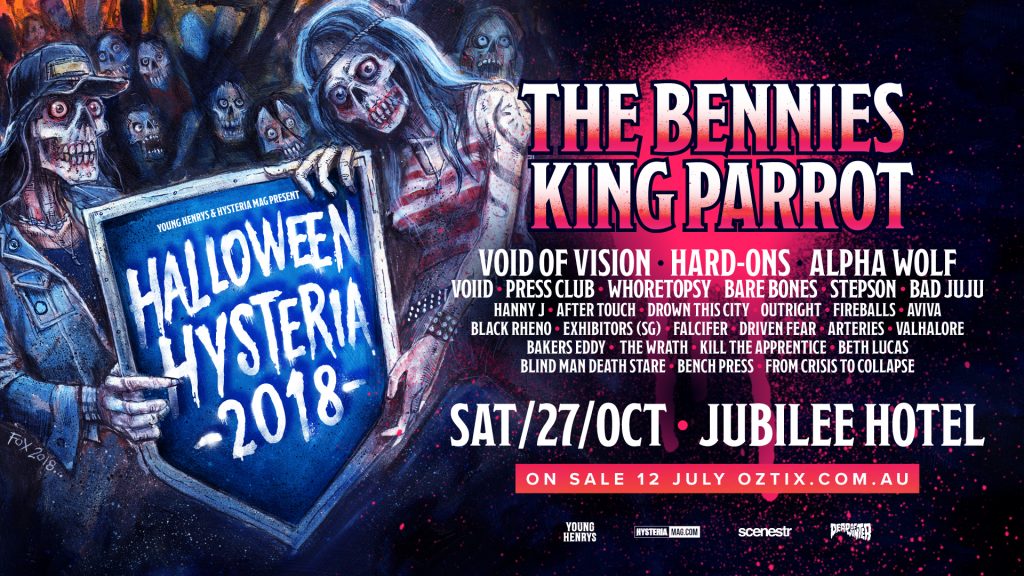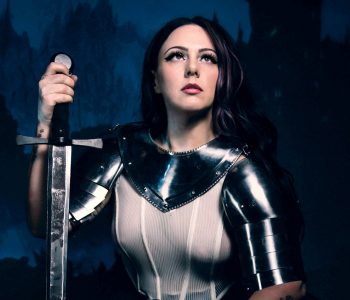Brisbane’s pop-punk upstarts Two Times Shy are soaring lofty heights as they let loose their …
I’ll happily jot emo down as my official favourite genre, but as we’ve seen time and time again, the bands themselves are less inclined to embrace their fractious, oft-maligned descriptor.
MORE: HALLOWEEN HYSTERIA 2018: A Celebration Of All Things Loud // POLISH CLUB: Kicking Brass // KICK OUT THE JAMS: POLARIS // Hailing Jams With Jamie Hails REVIEWS: IMMORTAL: Northern Chaos Gods // PAGAN: Black Wash
My Chemical Romance, for example, were the undisputed kings of the mid-2000s emo boom, selling arenas out on such saccharine lyrics as, “I think I’ll blow my brains against the ceiling, and as the fragments of my skull begin to fall on your tongue like pixie dust, just think happy thoughts.” Yet, frontman Gerard Way infamously brushed the classification off as “fucking garbage” in a heated chat with NME. No matter how apt it is to a band’s brand of sadjam, the term ’emo’ has become music’s inescapable curse.
Of course, there is the occasional band that welcomes the label with open arms. Take for example New York outfit Great Wight—new to the scene, yet on the cusp of blowing up with their wildly infectious debut album, The Suburbs Have Ruined My Life. Midway through a shift at his side hustle walking dogs (this man is straight-up living the dream, I swear), frontman Erik Garlington beams at the notion of his band of holding a place in emo’s (supposed) fourth wave. “I think emo is a really cool place right now,” he quips with rupturous enthusiasm.
Garlington is likewise bubbly for the whole duration of our chat, which is a little surprising given how searing some of the lyrical notions he deals in are.
Antithetic to its title, Suburbs isn’t your average LP of whiny skater anthems about heartbreak and pizza. The quartet (a duo on the album, Garlington accompanied by drummer Eli Watson) muse on topics of racism, queerphobia and misogyny in southern North America, cuts like The American Way and Not Black Enough polarising, yet utterly crucial—especially in a scene where non-white and LGBT+ contributors are often sidelined without due reason.
And the message is speading, Great Wight on the rise with no sign of slowing down. They just capped their first overseas tour (a two-week stint across the UK and Europe), dropped their album on (some goddamn beautiful) vinyl, and are enjoying a whirlwind of online buzz after an appearance on The Chris Gethard Show and a fantastic NPR Tiny Desk submission. Before they get too cool to talk to us, we gave Garlington a buzz to vibe on the finer details of our new favourite band.
Before we dive into the wacky world of Great Wight, let’s take a trip down memory lane: how did your journey in music kick off?
So I’ve been playing the guitar for, like, 13 years now, I think? Since I was 11 or 12. I started out in music when that movie Drumline came out. I was around nine or ten years old, and I wasn’t doing so great in school so my parents were like, “You need to join an elective.” So I was like, “I’ll do band, and I’ll play the drums!” And of course, everyone wanted to be a drummer after Drumline came out, so everyone signed up for that. Only, like, three people made it in, and they just picked the instruments out for the rest of us. I got put on the trombone—which I still play to this day, even though it’s not the coolest instrument.
I did that for three or four years before I was like, “Okay, I’m gonna play a cool instrument now!” And so I got a guitar; it was one of those B.C. Rich Warlocks—y’know, the real pointy metal ones—I got one of those and I started learning stuff like At The Drive-In, Coheed & Cambria… I started out on a real progressive rock kick, and then I realised that there’s not really… I mean, no offense to the genre, but, like… Y’know [laughs]. So then that turned into metalcore and post-hardcore, and I was like, “I don’t think I could do this forever.” So I joined some folk-punk bands, and I went through all of, like, the really niche sorts of things before I was like, “Okay, I’m gonna do my own thing.”
And then I started Great Wight in… I think it was Mississippi, bit I was too afraid to play any shows, so another five years went by, then I moved to Missouri and I finally started performing. I went through the early phases of being terrible to being decent in Missouri, and then three years ago, I moved here and went, “Okay, I want to do music for real. I need to get serious about it, and New York is where I need to be for that.” So I came here and I started over, changed the band name, got new bandmates—well, my old bandmates didn’t want to move here, so I got new ones and started from scratch, put out an album and everything, and then the last eight months have just been us finally being a fully fledged band.
So how did you link up with Eli and Natasha?
Eli’s cousin plays in a band, and he’s friends with a mutual friend that I met up here, and she was like, “Oh yeah, my friend’s cousin is moving here and he plays the drums—you should hit him up!” I wanted to start and all-person-of-colour band together, which took forever to figure out, and then I kind of just lucked into Eli… I guess I lucked into all of my bandmates! And then Natasha: I played an acoustic show on a rooftop once and she was there, and she literally came up to me crying, she was like, “I love this, you need bandmates, please say yes!” So she got in on bass.
And then for The Chris Gethard Show, I was like, “We should probably get a lead guitar player—we’re on TV after all, so we should have our fullest, best possible sound.” And then Eli was like, “Oh, I met this guy at a show we played a few months ago, you should ask him,” and he was just immediately down. So I got lucky on all three fronts [laughs]. Usually, I have to go through Craigslist, I hit people up like, “Oh, I know you’re in three bands, but why don’t you join a fourth!?” Things like that. But this was just… Everything just fell into place.
Everyone would expect me to have these super punk influences, but it’s mostly rap and R’n’B, and then, like, weird, outlier emo-type stuff.
– Erik Garlington
I love watching the live sets on The Chris Gethard Show, because it always just looks so weird and fun and out of control. What was that experience like for you guys?
It was weird! I think the album came out on September 29th, so on October 1st, I emailed anyone I could possibly find about it. And nobody got back to me for, like, three months, so I was like, “Oh, we’re not getting it.” And then they were like, “Oh, yeah we might be able to do that,” and then it was another three months of waiting on a ‘maybe’, and then they were just like, “Yeah, this band dropped off, you guys should come and play.” So we just got it. And then we got there and it was like… I’ve been telling people that it felt like a DIY show, but for a TV show. Because y’know, you hear about TV as, like, strict schedules, people have got their managers, their publicists and all of that, but for Gethard, we hung out, we did a rehearsal, we played the show, and then we hung out some more. It was super relaxed, which is what I need to thrive [laughs].
Was being a four-piece just a one-off for that, or do you have a second guitarist permanently now?
Yeah, he’s going to be a permanent part of the band! He couldn’t make it to Europe on a month and a half’s notice, obviously, but once we get back, he’s going to be in the fold, learning the rest of the songs off the album… Like, he’s officially in.
That is so fucking cool!
Yeah! I don’t think I’ve ever had a lead guitar player in any of my bands, so it’s a first for me. It’s fitting really well, so I’m very excited.
A lot of the people reading this interview probably won’t have heard of Great Wight. How would you describe the band for those guys?
So I’ve got some of those zinger words that try to get people’s attention on our ads, where I would say we’re an “all-black, queer-punk, afro-punk band,” which is very hard to come by and find [laughs]. But really, we’re just an emo band that’s super into all these Philly bands like Kississippi and Modern Baseball and The Front… Wait, I don’t think The Front Bottoms are from Philly… Eh, they’re close, they’re from New Jersey. But y’know, all these really good fourth-wave emo bands where I’m like, “Damn, I wanna do that, and there’s no-one that looks like me doing that, so why don’t we?” That would be my descriptor, if I had to sell us to someone [laughs].
You’re the first person I’ve ever heard actually embrace the term “fourth-wave emo”.
Nooooo! I love it. It’s so good! I think emo is a really cool place right now. Like, I know everyone is like really shitting on Mom Jeans and the ‘emo adjacent’ things like Remo Drive and Prince Daddy, but I’m very happy about the current scene.
I get a bit of those Modern Baseball-y vibes, a bit of a Say Anything vibe and a Front Bottoms-y vibe… Are those your main influences as a musician?
Yeah, exactly! The Front Bottoms, Say Anything—dude, I have a Say Anything tattoo! Say Anything is my favourite band. Even to this day, their albums are amazing, I’ve listened to every single one the day they came out… So Say Anything, Modern Baseball and The Front Bottoms, and then, like, rap and R’n’B. I loved Kanye before he lost his mind, and Isaiah Rashad is a big favourite right now. Everyone would expect me to have these super punk influences, but it’s mostly rap and R’n’B, and then, like, weird, outlier emo-type stuff.
I never thought I would affect anyone like that, so it’s just been really humbling and really amazing to see.
– Erik Garlington
Do you think those rap influences have much of an impact on the way you approach songwriting?
Not really. Going back to when I started out with prog-rock, I still write songs the same way I did then. Like, I’ll hear a chord in a song and I’ll be like, “What was that!? I have to use that in a song some day!” Or I’ll hear a key change and I’ll be like, “Wow, that was really cool, I’ve never thought to write with a key change before.” Mostly when I’m writing, it just starts out as some little idea that I haven’t done, and then it’ll just build from there. The instrumental comes first, and then lyrics are usually just, like, I’ll start humming a melody and then I just put words in the place of that.
I’ve noticed that you guys have a very pertinent DIY aesthetic. Is that’s something you embody as a necessity, being a small band in a burgeoning punk scene, or is DIY something you have a personal connection to?
It’s just a necessity [laughs]. In the planning phases, I’m always like, “Okay, and then we’re gonna do a 30-minute video like Kanye did for Runaway, and then we’re gonna do pictures on top of something we can’t afford.” And then I’m just like, “Well, we actually can’t.” I don’t know if you’ve seen our current promo picture with the butterflies, but those are fake butterflies that I got online for like $10. When we had that idea, I was like, “Okay, we need to buy real butterflies, and we need to go out into the country upstate…” But it turns out that 40 butterflies is $300, and our budget was $10, so that didn’t work out too well for us [laughs]. So it’s mostly out of necessity, because I just have way too many big ideas and I can’t afford any of them.
If you had the budget to do literally anything…
Oh my God! It would just be, like, My Beautiful Dark Twisted Fantasy-era Kanye—ridiculous set pieces, ridiculous extras onstage, crazy music videos that don’t even have anything to do with the song but look amazing… We need to be playing on a weird stage, like, y’know that floating stage he had for a while? Something like that. If we had no budget and an unlimited amount of time, it would just be wild. That’s the endgame goal.
So let’s talk about this album, The Suburbs Have Ruined My Life. How do you feel about the way it’s been received so far?
Very excited, very grateful… I don’t know. Living in the midwest, I’d put something out, but the scene there was not very ‘open’ to hear different-sounding things. So I took a chance and moved a thousand miles away, and the people here are really loving it! It feels really amazing that it all paid off, that the risk was worth it, and people have just been, like… We’ve been getting fan mail—people saying, “Oh, I cried when I heard this.” I never thought I would affect anyone like that, so it’s just been really humbling and really amazing to see.
All these straight, white male-dominated themes are just so homogenous and so samey, so I think if people want to call us political, that’s fine, as long as they’re actually listening to the songs…
– Erik Garlington
How do you feel about the record on a personal level?
I’m still very proud of it! I think some of the lyrics are a little dated and I’ve grown since I wrote about a few of topics, but I’m still very happy with the songs and I’m still glad I wrote them—it still feels like what I needed to hear when I was 16, and that was my main goal. If there are kids like me now that need to hear that, I hope they find this album and appreciate those songs.
Why have the suburbs ruined your life?
So I grew up in a military family; my mum was in the air force for, like, 32 years—a long time, before I was born—and every two years we would have to move somewhere else, and it always happened to be some super conservative place like Missouri, Kansas, Mississippi, or somewhere really random like Homer, Alaska. So I never got to fit in, being an awkward, queer black kid into punk music. Like, it was already hard enough, and then it was like, “Oh, I’ve made a friend… Aaaaand they’re gone!” So it was just that whole mentality. And y’know, the American suburbs are just where dreams go to die.
You always hear the stereotypes, like, “Oh, we were young and we lived in the city and we took risks, and then we had kids and bought a van and moved into a McMansion.” Being around that for the first 16, 17 years of my life… It was torture. We moved off-base in Mississippi and I just went wild. I didn’t know how to act—I was getting suspended at school, I was skipping school, I was just like, “This is what life could be? This is amazing!” So in short, the suburbs are just boring [laughs].
A lot of this record relates to a theme of lifting up and empowering marginalised groups, especially in places like you mentioned—because y’know, Missouri definitely wouldn’t be a great place to be a queer or black person. How do you feel about being labeled a political band in that regard?
I’m into it. I mean, my whole thing is that I’m so over hearing love songs, or songs about your hometown, or songs about your ex-girlfriend—like, all these straight, white male-dominated themes are just so homogenous and so samey, so I think if people want to call us political, that’s fine, as long as they’re actually listening to the songs and not just being like, “Oh, a political record, better go chop my ears off!”
Have you noticed much of a shift in the way the music industry treats bands with queer members or people of colour in them?
Yeah! I think it’s a lot better, like… I don’t know, it’s not like people here feel the need to have quotas; it’s like, “Damn, everyone on our roster is a straight, white guy from Connecticut, we should do better!” And they have been doing better! Tours, now, are really diverse, and bands I would never have heard of are being rewarded for making great music, instead of being ignored because of who’s in them. Bands—and fans—are speaking up and being like, “Yo, there are more than straight, white dudes here, you should check them out.” So I’m pretty positive about it. I mean, I’m sure it can be exploited eventually; someone, somewhere will be like, “Oh man, we need to sign another queer band before the month ends!” But for now, I think it’s all in a very good place.
What are some of your favourite up-and-coming bands that represent diversity?
Kississippi, obviously! Have you listened to their album yet?
I love stuff like Taking Back Sunday’s dual vocals, so I would love to do more of that now that it can actually be done live, ‘cause it’s not just me gasping for air.
– Erik Garlington
Sunset Blush! It’s so good!
It’s so good! So we’ve got Kississippi… Camp Cope are amazing, obviously. I just missed them—they played in New York, like, two days ago, and I had no idea. T-Rextasy are really good, they’re from here… Bay Faction are a good one, too—they’re from Boston, and I think they really need to be heard right now.
Hell yes! I want to go back to Suburbs for a second, because I love the multi-tracked vocals between you and Natasha on Wallflower. Is that something we could see more of on future tracks?
Yeah! So actually, Natasha joined, like, two days after the record came out. The person singing is actually my wife, Nikki. But now that Natasha is in the fold, once it’s time to write the next album, it’s gonna be like, “Oh my God, You should sing this part and I’ll sing this part!” I love stuff like Taking Back Sunday’s dual vocals, so I would love to do more of that now that it can actually be done live, ‘cause it’s not just me gasping for air. Hopefully there’ll be way more Natasha on LP2, for sure!
How much have you guys been writing since Suburbs came out? Is there much new Great Wight music in the works?
A little bit! Just because it’s only been nine months, and I don’t want to be like, “Alright, let’s get right back on the next one!” Especially with how busy this year has been. But I’ve got, like, a general theme of what I want the next one to be—the album title and how many songs there’ll be and all that sort of stuff. I usually just write the songs and bring them to the band, and we sit down together and hash it all out. But yeah, there’s nothing yet. I want to sit on this first one for a bit longer.
So I’m guessing we can’t get a little sneaky peek into where your mind is at on that general theme?
Well… Actually, no! [Laughs]. Let me keep it under wraps for now. It’s top secret!
Hypothetically, you’ve been booked to play a festival in Australia, but there’s crazy hailstorms and all of the stage equipment breaks, and by the time it’s all fixed, you only have enough time to play one song. There’s 100,000 soaking wet people staring you down—what song do you play for them?
Oh my God… That’s… Damn! I guess… No… Um… The Americ—no! Suburbs! Suburbs! Title track! I think… No… Yes! Yes. Suburbs—final answer, sorry [laughs]. I don’t know, I feel like it’s just a really intense song, there’s a really good dynamic, and it kind of like encapsulates us as a band and what our message is—at least for this album—and what we think about life, and what it can be and what it actually is… Expectations versus reality. And that ending lead guitar part is really epic—I think that would just sound amazing reverberated in an amphitheatre that could fit 100,000 people.
The Suburbs Have Ruined My Life is out now independently.
Grab a physical copy now from their webstore, or jam it digitally via Bandcamp, iTunes or Spotify.






